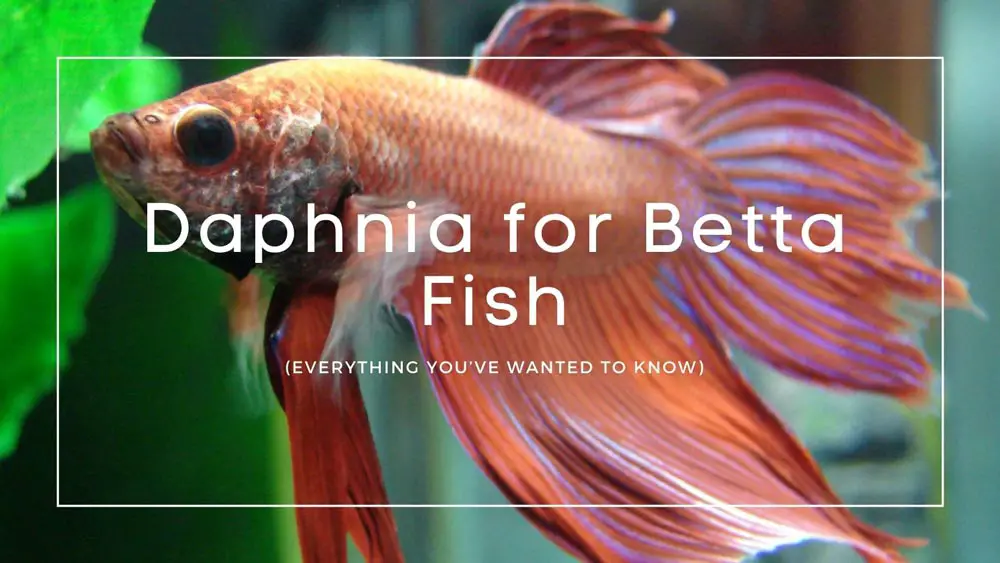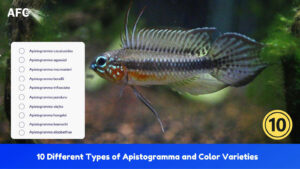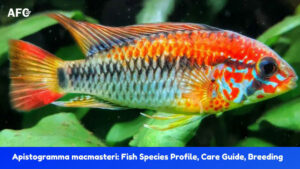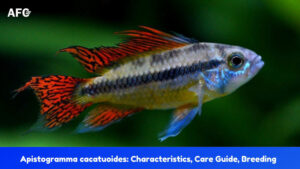Daphnia is more than just one of the ways to treat betta constipation. It can also make for a nice treat, whenever you want to give them something nice.
Despite the exotic-sounding name, daphnia is actually a fairly common product. It is not only one of the most popular snacks for certain pets, but it is also one of the healthiest. Indeed, when we’re talking about the best things to feed betta fish, daphnia is widely considered to be one of the top healthy foods for bettas to be found anywhere.
To start, when it comes to the benefits of daphnia for betta fish, we need to first understand why a varied diet is a good idea for your bettas in the first place.
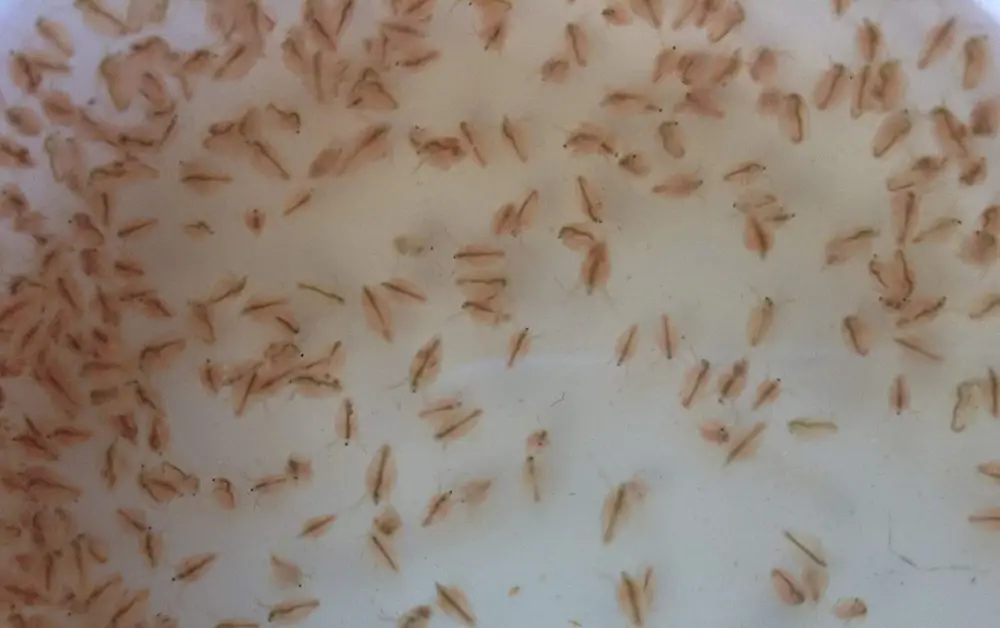
What Exactly Is Daphnia?
In a nutshell, daphnia refers to aquatic fleas. When consumed by a betta fish, they can function as a digestive aid. In addition to offering several key nutritional benefits, daphnia can also act as a laxative. While it’s not something you want to feed them in large quantities, or even every day, it can be a great way to supplement your betta’s main source of diet.
Most betta love to eat daphnia, so you may want to have some on hand. We’re going to take you through a deeper look at its many benefits, while also telling you where you can find some of the best examples for your bettas.
Is Daphnia Good for Bettas?
Whether frozen or live, daphnia offers a number of benefits, as we’ve touched on. It really just comes down to the fact that daphnia is a powerful digestive tool for bettas. Not only does this mean they can eat and process their regular feedings more effectively, but it also means they’re going to have more energy.
Don’t forget either that daphnia comes packed with protein. This is where the energy benefit of daphnia for bettas can really come into play. You definitely want your betta to have lots of natural energy to play and explore.
Daphnia is exactly the sort of thing your bettas would eat in the wild. That makes them a perfect choice for your aquarium. Other fish like to eat them, too. Most freshwater fish will probably either eat them, with no significant consequence, or simply ignore them. However, they are particularly appealing to your betta fish.
Live Or Frozen Daphnia: What Daphnia Is Best?
The next step is to decide whether to feed them frozen daphnia or live daphnia. Each have their own benefits and potential drawbacks. Some would suggest keeping both on hand, but this strikes us as being a bit much.
Ultimately, you should just weigh the pros and cons of frozen and live daphnia, and make your decision from there.
Buy from Amazon: 500+ Live Daphnia Magna
Live Daphnia
Live daphnia is exactly what it sounds like. It means buying these aquatic fleas in their living state, and then adding them to your aquarium. As we highlighted above, there are several online resources available from which to purchase living daphnia for betta fish. Naturally, we would advise playing close attention to the vendor you’re buying from. Make sure you’re purchasing them from a reliable source.
Price-wise, there isn’t really a significance difference between live daphnia and the freeze-dried option. As you may have already guessed, live daphnia tends to be a little higher in cost, but this is generally just a few (less than ten) dollars.
If you don’t want to buy them online, keep in mind that it’s not all that difficult to breed daphnia on your own. However, it obviously still requires an investment of time and resources. It certainly becomes cost-effective over time, if you’re serious about always having some around to benefit your betta.
Benefits
Easy to breed
One of the reasons why live daphnia are relatively cheap is because they are very, very easy to breed. Do some research, and you’ll see what we’re talking about. Even in the sense that it takes time and a little money, these investments are still considerably minor, compared to other breeding-for-betta-food possibilities.
You can find them just about anywhere
We’ll touch on the possibility of daphnia disease and betta fish later. For now, understand that while you can find them virtually everywhere, and while this is a keen benefit in terms of cost and so forth, you don’t want to just scoop some out of the water.
The thrill of the hunt: No, we’re not kidding
Your bettas are very intelligent freshwater fish. As such, they like to be challenged, and they require ongoing stimulation to keep them as happy as can be. A great way to hit those buttons without putting in a ton of effort is to put live daphnia in the tank. Your bettas will love hunting them!
As we mentioned before, it’s not a great idea to just fish some daphnia out of a nearby source. The potential for parasites increases in these situations. In fact, daphnia will always come with an extremely miniscule possibility of giving your bettas a parasite. This should NOT deter you from feeding it to them, unless even the smallest possibility of risk is enough for you to reconsider.
Ask any betta fish expert or veterinary doctor with experience. They will tell you that the odds of your bettas getting a parasite from daphnia that comes from a reliable source are very, very, very low.
That said, it is still worth keeping in mind.
Downsides
The parasites
We’ve discussed this. If you suspect your betta has a parasite, here’s what you need to keep in mind. To reiterate, the odds of your betta contracting a parasite from reliable daphnia sources are incredibly low.
Chemicals
Depending upon where the daphnia are coming from, you may have to contend with the presence of chemicals.
Easier to overfeed
Like any betta fish food, you always run the risk of unintentionally overfeeding them. Given the extreme smallness of daphnia, it is easy to assume it’s okay to give your betta fish a bunch. In fact, you should only give them four to six daphnia per feeding.
(Have you ever thought about feeding your betta bloodworms?)
Freeze-Dried Daphnia For Bettas
The convenience and straightforwardness of freeze-dried daphnia cannot be denied. It is also considerably easier to find them in stores and online.
Do your bettas get the same amount of nutritional satisfaction as live daphnia? Mostly. While not quite on the same level as live daphnia, they do give your bettas most of the nutritional benefits that we’ve been discussing. Furthermore, the best freeze-dried daphnia will offer texture and color that will be attractive to your bettas.
Benefits
No parasites
With freeze-dried daphnia and parasites, you don’t have a thing to worry about. All you need to do is feed them, and make sure you are following the directions for feeding them.
Medicine carrying
Giving your betta fish medicine can be a serious pain. One of your best bets for ensuring they’re getting the care they need is to use something else as a carrier. There are a few options to that end, but many betta owners feel that daphnia is the most effective and pleasant option for their bettas.
Your bettas will still like it
At the end of the day, while you don’t get the benefit of giving your betta fish something to chase, you still get something that gives them a number of tangible benefits, while still coming packaged as something they will like.
Again, make sure to follow all instructions associated with whatever you wind up buying for your betta fish. Overfeeding them can lead to bloating, constipation, and create a variety of conditions for ill-health.
Downsides
The potential for overfeeding is just one of the possible downsides of freeze-dried betta fish you’re going to want to keep in mind:
- Feeding the daphnia incorrectly – you don’t want to give your betta the daphnia on a regular basis. In other words, don’t feed them every single day.
- Swelling: You should also be aware that it’s not a good idea to simply drop the freeze-dried daphnia in the tank. The pieces can swell in their stomach, and cause all sorts of health issues. Feed them approximately 1.8 grams a day, and be sure to soak them in water for approximately fifteen minutes beforehand.
Frozen Daphnia For Bettas
No, we did not forget about the possibility of buying frozen daphnia, which is different from freeze-dried daphnia.
Available in cube form, they should be cut up into smaller portions before giving them to your betta. What you don’t want to do is give them these treats in complete cube form. Take a small piece from cube, make it even smaller, and wait about fifteen minutes for the defrosting to set in.
This is perhaps the best way to get live daphnia to your betta with the least amount of fuss. Raising them on your own can take time, and even buying live options from a retailer means buying very small quantities, which can send your long-term costs rising.
Benefits
- You’re getting the same benefits as what you can find with live. More to the point than what you get with freeze-dried products.
- You don’t have to worry about parasites. The process of bringing frozen daphnia to market all but eradicates the possibility of having this happen.
- You will also find that they are very easy indeed to clean and handle. They also keep for an extremely long time.
Downside
The biggest downside to frozen daphnia once again points to the possibility of feeding them too much without meaning to. This is why we suggest cutting up the cubes into smaller pieces, and then cutting them up into smaller pieces from there. Any products you purchase will likely come with complete directions.
Make sure to defrost them completely, as well. Dropping them in frozen won’t be very appealing or helpful to your betta fish at all.
Conclusion
Yes, you can feed daphnia to your betta fish fry, if you’re looking for something healthy and tasty to give them. Wait 3-4 weeks before feeding them, and opt for the frozen kind, as they offer the best benefits.
With all of this information in your corner, figuring out the best daphnia to feed your betta fish shouldn’t be difficult at all.
